PRESERVING A MILITARY LEGACY FOR FUTURE GENERATIONS
The following Reflections represents Sgt Steve Putnam legacy of his military service from 1970 to 1975. If you are a Veteran, consider preserving a record of your own military service, including your memories and photographs, on Togetherweserved.com (TWS), the leading archive of living military history. The following Service Reflections is an easy-to-complete self-interview, located on your TWS Military Service Page, which enables you to remember key people and events from your military service and the impact they made on your life. Start recording your own Military Memories HERE.
Please describe who or what influenced your decision to join the Marine Corps?
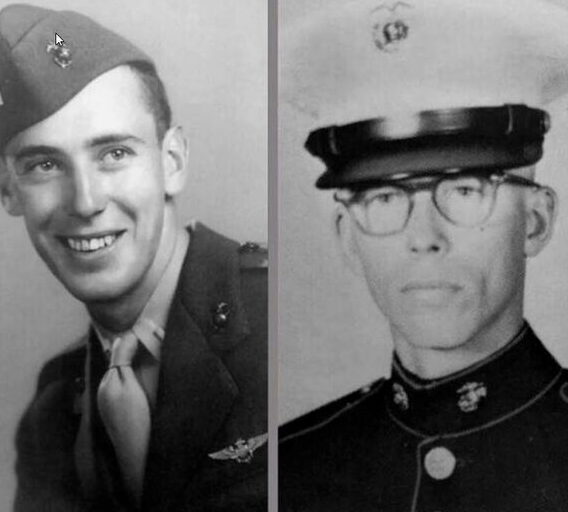
My Father was a Marine Veteran of both WWII and Korea as a Corsair pilot in VMA-212. After Korea, he stayed in the Reserves, retiring as a Lt. Colonel. My Uncle was a Marine veteran of WWII, having fought on Iwo Jima and received a battlefield commission due to attrition in his unit. My cousin’s husband served as an officer in the Marines for 4 years in the early 1960’s. I had read Battle Cry by Leon Uris and a lot of other WWII history related to the Marines in WWII and Korea. In 1969, I was a sophomore in college and was part of the first lottery draft with the number 132, if my memory serves me correctly. I was thinking of changing my major in college but not having a clear idea of what that looked like. I had a strong desire of wanting to serve my country, but not by being drafted. Several other students at our local community college I attended were in the local Marine Reserve unit, and I began talking to them about their experiences. My Father was still attached to this unit and getting ready to retire.
I didn’t discuss this with my Dad but told him one day in December 1969 that I was going to join the Reserves. He didn’t try to talk me out of it but didn’t encourage me, either. He was with me for my swearing-in at the local Reserve Unit I & I Company Commander. Three weeks later, on January 15th, I was on a plane to MCRD San Diego from West Palm Beach, Florida. I had a guarantee for Radio School with an MOS of 2533, which was what the Reserve Unit needed. In my mind, I was Danny Forester of Battle Cry, although I was far from a star High School athlete. Neither my Dad nor my Uncle had talked about their war experiences, although my Dad would occasionally tell some funny stories.
Whether you were in the service for several years or as a career, please describe the direction or path you took. What was your reason for leaving?
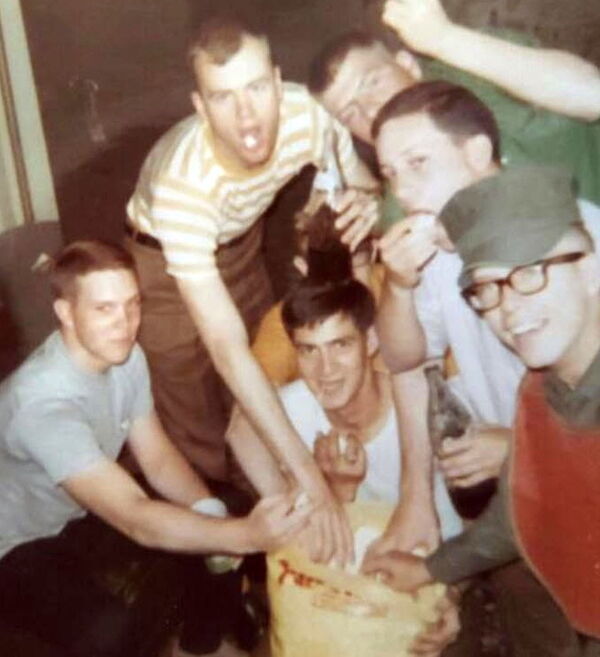
I fulfilled my six-year obligation in the Reserves and received an Honorable Discharge in December 1975. I served as a radio operator in two different amphibious tractor units and also in an ANGLICO unit for about a year and a half. With the winding down and ending of the Vietnam War, the early to mid 1970’s was not a very good or popular time to be in the military. I finished college at the University of Florida and earned an Engineering degree in 1974. I had an opportunity to reenlist and even the possibility of extending and going to OCS, but I chose instead to start my working career.
If you participated in any military operations, including combat, humanitarian and peacekeeping operations, please describe those which made a lasting impact on you and, if life-changing, in what way?
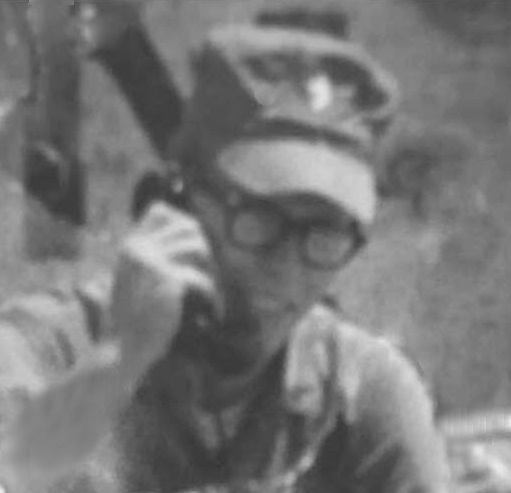
After my initial six-month active duty period the rest of my time was going to regular monthly drills and two-week summer training drills. I did participate in two different large-scale training operations, although I don’t know if they named them in those days like they do now. One was in 1971 and involved a ship-to-shore amphibious assault at Camp Pendelton and the entire two weeks in the field. It included Infantry and Armor and was a battalion-sized maneuver. The second was very similar in 1974 but occurred at Camp Lejeune. I received a commendation letter that was placed in my records jacket for my role as our Platoon commander radio operator for good communication across the company and battalion nets. I guess I made our Lieutenant look good. During this training operation, I found out later that we were the first Reserve unit from the 4th Amphibian Assault Battalion to make an underway launch from an LSD. We had transitioned from the old LVTP-5 Amtrac to the then-new LVTP-7 Amtrac. It was like going from a Model A to a sleek sports car. The LVTP-5 launched while the ship was at anchor and always bobbed underwater briefly after launch, and you always feared you wouldn’t come back up. The underway launch was much smoother as you drove off the back of the ship and just kept going without submerging briefly.
Did you encounter any situation during your military service when you believed there was a possibility you might not survive? if so, please describe what happened and what was the outcome.
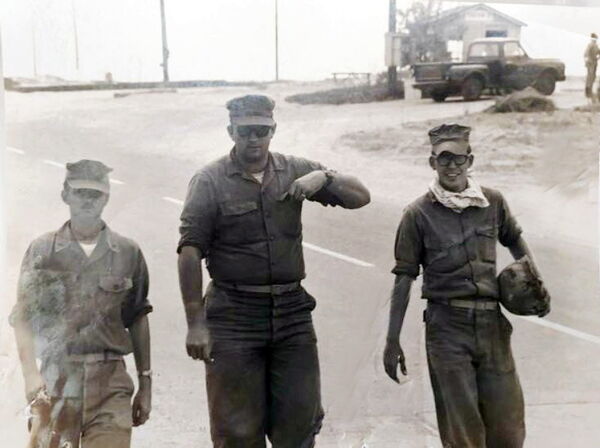
I don’t think I was in fear for my/our lives, but it was pretty scary at the time. In 1972 our Reserve Unit transitioned from an Amphibious Assault Company to becoming an ANGLICO Unit. We were going through Naval Gunfire School in Little Creek, VA. The first week was all dry firing using a pretty neat for the time computerized large-scale map board and simulated naval gunfire. The 2nd week, we were on the USS Wilson, a WWII Destroyer just back from a med cruise for our live fire training. The training took place in the Chesapeake Bay off Bloodsworth Island, which was the Naval Gunnery Range. The island was about 80 miles up the Bay, and the Bay was wide enough at that point that you couldn’t see the shore on either side. After the 1st day of firing, we were informed that Hurricane Agnes was roaring up the east coast. We didn’t have time to go back to Norfolk to port, so we stayed in position off Bloodsworth Island. For 24 hours, as the Hurricane went over us, we could have well as been in the middle of the Atlantic. We tossed and rolled for that 24 hours. Only the inner passageway was open at your own risk. No one was allowed outside on any of the deck areas. No food was served, and you went to the head if you were desperate and had to crawl along the passageway to get there. We survived the ordeal and completed Naval Gunfire School, but there were moments we thought we would roll over and capsize, and that would be the end of us.
Of all your duty stations or assignments, which one do you have fondest memories of and why? which was your least favorite?
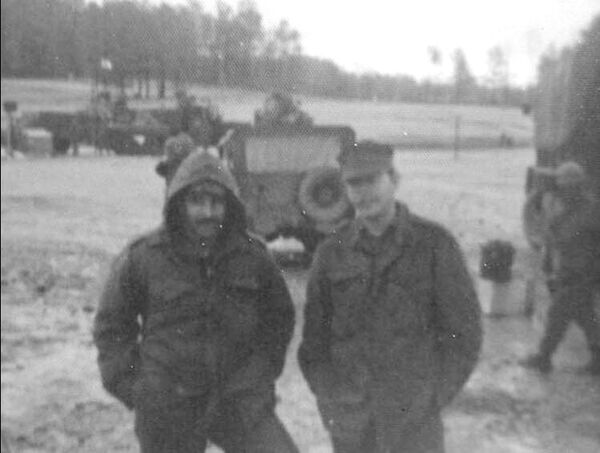
Little Creek in the Norfolk area had pretty good liberty, being close to Virginia Beach, and was my favorite. My least favorite was an old Army Base (I can’t remember the name, but I think it was Fort Pickett) near Blacksburg, VA. We were there in March 1975 for live-fire gunnery training with our LVT-P7 Amtracs. It was in the middle of nowhere, and it was cold, damp, and even snowed several inches while we were there. We stayed in old WWII wooden barracks, and I am glad we never went back there.
From your entire military service, describe any memories you still reflect back on to this day.
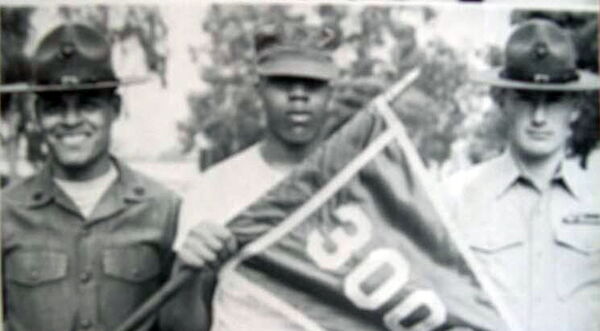
It’s hard to pick any one memory, but I think Boot Camp brings back the most memories. The difficulty of the training, both physically and mentally, at the age of 19 made the rest of my life seem easy in comparison. Throughout my enlistment, I got to do things that I would not have done otherwise. I credit all of our Drill Instructors for a job well done for turning all of us pukes into Marines.
What professional achievements are you most proud of from your military career?
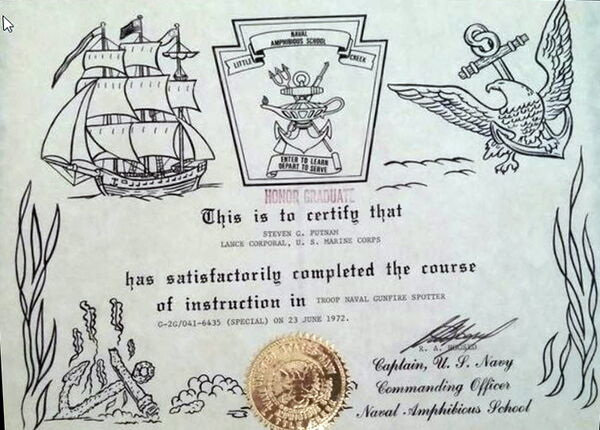
Our Reserve Company transitioned in late 1971 from an AAV Company to an ANGLICO Detachment of the 4th ANGLICO. In the summer of 1972, we attended Naval Gunfire School at the Little Creek Amphibious Base. The School had a computerized map table which for the period seemed pretty sophisticated but today would seem pretty basic. After the classroom and computer training, we went to live fire training on the USS Wilson (a WW II Destroyer) off Bloodsworth Island in the Chesapeake Bay. I was the Honor Graduate of our Class. Also, being an Engineering Student at the University of Florida helped make the Class more understandable for me.
Of all the medals, awards, formal presentations and qualification badges you received, or other memorabilia, which one is the most meaningful to you and why?
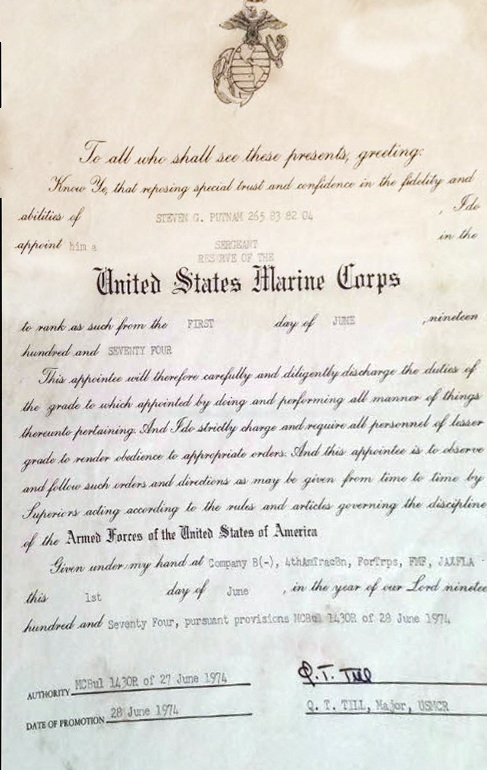
I received a Meritorious Mast Commendation letter and promotion from Corporal, E-4 to Sargeant, E-5 for performance of duties during the first deployment of the LVT P-7 in the Reserve Component. At the time, I felt I was just doing my job, and it was a surprise to receive the Meritorious Mast promotion. It was one of the most proud moments of my time in the Reserves.
Which individual(s) from your time in the military stand out as having the most positive impact on you and why?
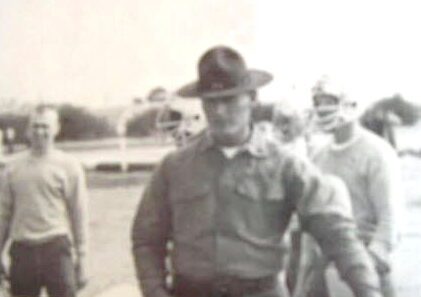
Sargeant S. F. Lambert was one of our drill instructors. All of our drill instructors had done at least one tour of duty in Vietnam if not two. Sgt. Lambert was a veteran of the siege of Khe-San, having survived the entire siege. He was very tough but fair. All of our DIs were very tough, but there was something different about Sgt. Lambert.
After boot camp, there were three of us who had been in Platoon 3008 and were back in San Diego to go to Radio School. We happened to run into Sgt. Lambert one afternoon near the parade deck (our barracks were the old Spanish-style barracks right on the parade deck). He invited us to come to his apartment to have dinner with him and his wife. We had the most enjoyable evening with him, his wife, and his infant child in their apartment near MCRD. We got to know him as a very sincere, compassionate man. A loving husband and father. He explained his role as a DI, why he was so tough on us, and the process of making Marines from his viewpoint. He had gone through one of the toughest battles in Marine Corps history and wanted to make sure his recruits were prepared for whatever they would face themselves. He did his job as a DI to the best of his ability and owed his recruits that. He had friends who hadn’t survived the hell of Khe-San.
He couldn’t have been a better example for us to follow.
List the names of old friends you served with, at which locations, and recount what you remember most about them. Indicate those you are already in touch with and those you would like to make contact with.
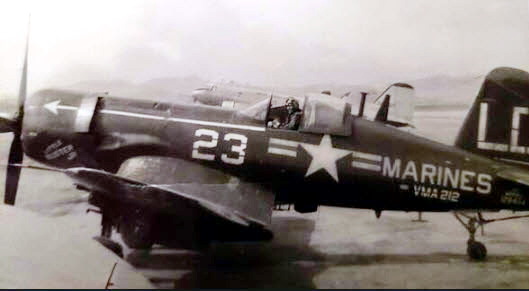
I regret that I haven’t kept with anyone that I served with. At my current age (73), it is even difficult to remember the names of the guys I’m with in the photos.
Can you recount a particular incident from your service which may or may not have been funny at the time, but still makes you laugh?
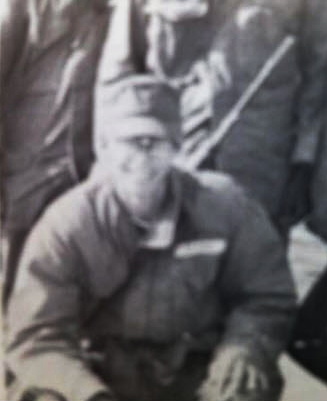
We were at Edson Range in February 1970 for our rifle qualifications during boot camp, and Valentine’s Day occurred while we were there. At the end of the day, we would be in platoon formation outside our barracks, and we would have to remove our boots before entering the squad bay, as well as be checked to make sure no one brought any live ammunition from the range. One afternoon, as we were in formation going through this routine, one of our DIs yelled, “Private Putnam front and center.” I had no idea what was going on; we had our boots off then, and I hurried to the front of the formation and stood at attention in front of the DI. He then said follow me, and we went to the Drill instructor’s office where the other two DIs were waiting. They had me standing at attention and then handed me a brown paper-wrapped package addressed to me and asked me to open it. To my surprise, it was a box of Valentine’s chocolates sent from a girl I had gone to high school with. What surprised me was that we were just friends, and this was unexpected. But I digress. The DIs asked if I wanted the chocolate, and I said no, they could have it. They just laughed and said, no, you eat it and commenced to having me stuff my mouth with 5 or 6 pieces until I couldn’t fit any more in my mouth. They then had me squat down and waddle and quack like a duck around the office, laughing their heads off. More than half the box was left, and I begged that they could have the rest of it but don’t make me eat anymore. During this whole time, the platoon was still at attention outside. I then had to get back in formation, and I’m sure there was chocolate dribbling out of the corner of my mouth and a grin on my face.
What profession did you follow after your military service and what are you doing now? If you are currently serving, what is your present occupational specialty?
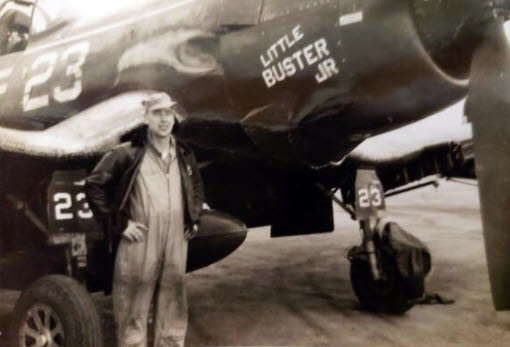
I graduated from the University of Florida in June 1974 with an engineering degree. I was still in a reserve unit based at Jax NAS (Bravo Company, 4th AAV) and began working just outside Orlando, FL. I worked in the engineering field for approximately two years and then began a career in the construction industry, which lasted forty-four years until I retired in February 2020.
What military associations are you a member of, if any? What specific benefits do you derive from your memberships?
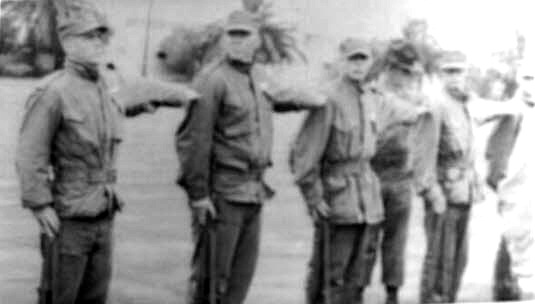
The Marine Corps Association. I look forward to receiving Leatherneck magazine each month and reading it cover to cover. I occasionally go to their website and read articles in the Gazette.
In what ways has serving in the military influenced the way you have approached your life and your career? What do you miss most about your time in the service?
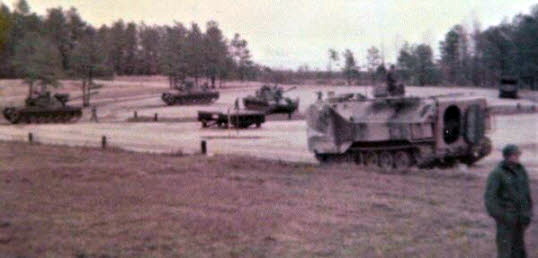
The discipline I learned, particularly through boot camp, has been invaluable throughout every aspect of my life going forward. Being physically and mentally challenged beyond anything I ever imagined has given me the confidence to face every challenge that has come since then.
I certainly miss the camaraderie that comes with serving alongside others in very challenging situations. Unfortunately, serving at the end of the Vietnam era and the unpopularity of serving in the military in general at that time robbed me of any pride I might have felt. It wasn’t until the early 1980s under President Reagan that I began feeling pride in my service.
Based on your own experiences, what advice would you give to those who have recently joined the Marine Corps?
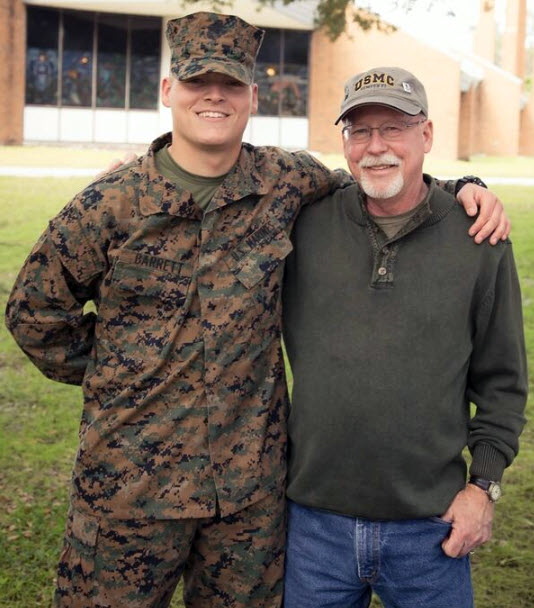
I have a grandson who just completed his five-year enlistment last fall. We were able to go to his boot camp graduation at Paris Island in February of 2016 (I was a Hollywood Marine and had never been to Paris Island) and experience boot camp graduation as a spectator. Boot Camp seemed much different than what I had experienced in 1970. We tried to get him to reenlist but he was ready to move on to something new.
My advice is to embrace the experience and the illustrious history of the Marine Corps. Understand that you are responsible for carrying on the proud traditions of those who have gone before you. Many men and women have sacrificed life and limb to keep our Country free. Those who sacrificed their lives will never experience what the rest of us have experienced in growing old, having a family, and living fulfilled lives. We owe it to them to live the best life possible to honor their memories and to make sure their sacrifice was meaningful.
In what ways has togetherweserved.com helped you remember your military service and the friends you served with.
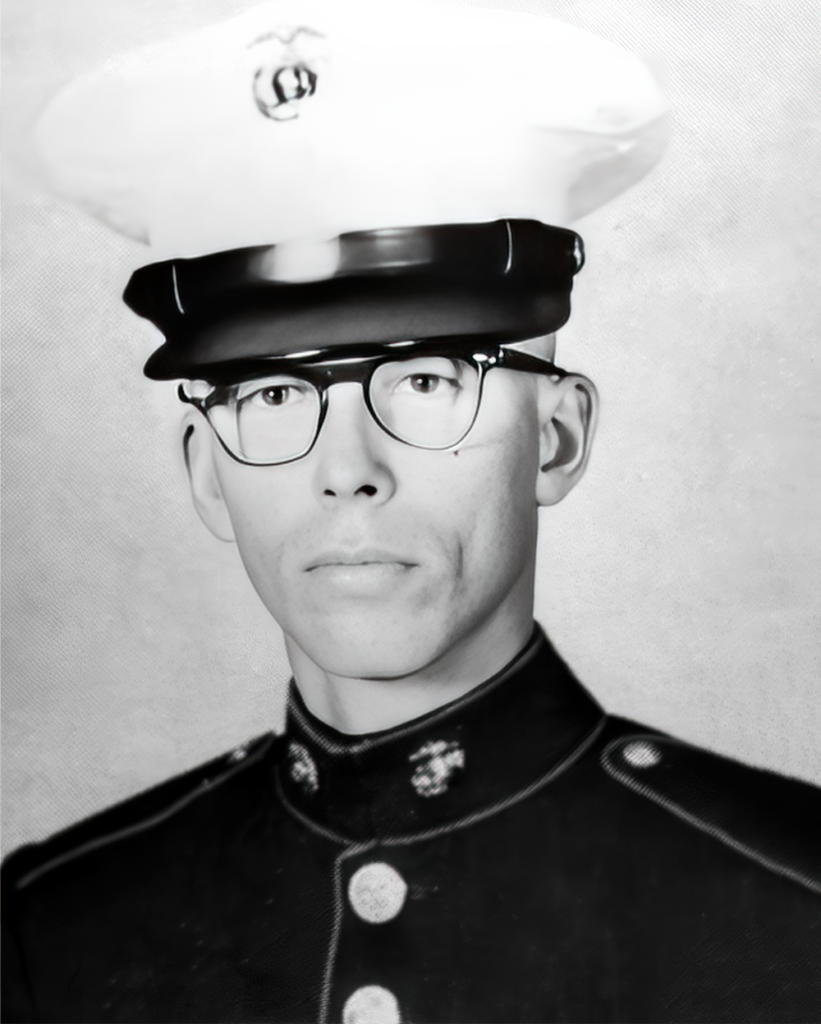
Just the exercise of sitting and writing these reflections has brought back many good memories from the past. I have been able to set up a commemorative page for my Father, who passed away in 2009. I have been able to remember and honor a fallen Brother. I am leaving a legacy for my children and grandchildren to learn a little bit more about who their grandfather and great-grandfather were.
KC 11.1.24
PRESERVE YOUR OWN SERVICE MEMORIES!
Boot Camp, Units, Combat Operations
Join Togetherweserved.com to Create a Legacy of Your Service
U.S. Marine Corps, U.S. Navy, U.S. Air Force, U.S. Army, U.S. Coast Guard

Love it lot of detail went over my head it did remind me of my brothers high school friend. He was three years younger and was a ontos driver. We met sitting on a 4 holer in middle of cemetery near danang. It was 1965 he let me drive his ontos short bit. He was wounded by a ied lost his hearing but re enlisted . He was Melvin Eugene Walters
Good memories, Sgt Steve Putnam. I served with the US Army from 1967 to 1992, and yes, I still remember my Basic and advanced Infantry training at Ft Dix and Ft Lewis, WA. The second period of Infantry training changed my life from a young private to a mature, first-class private.